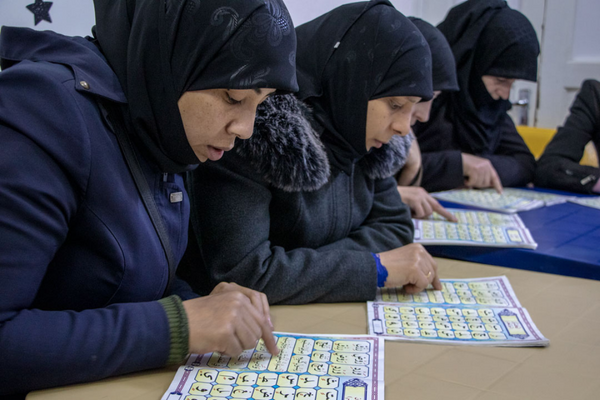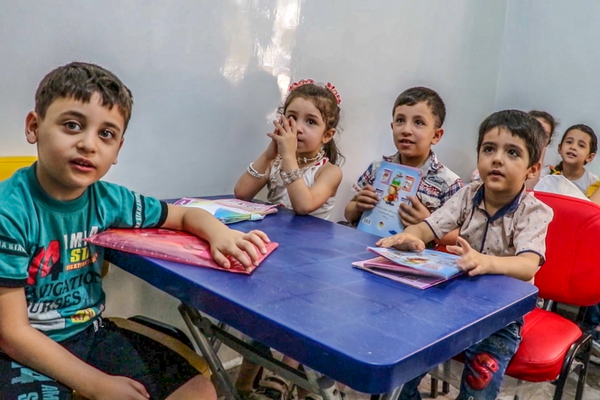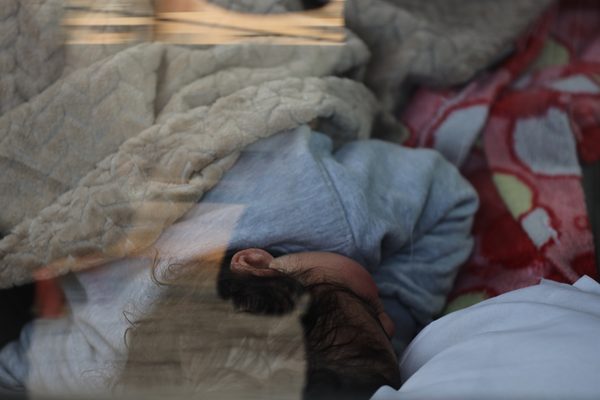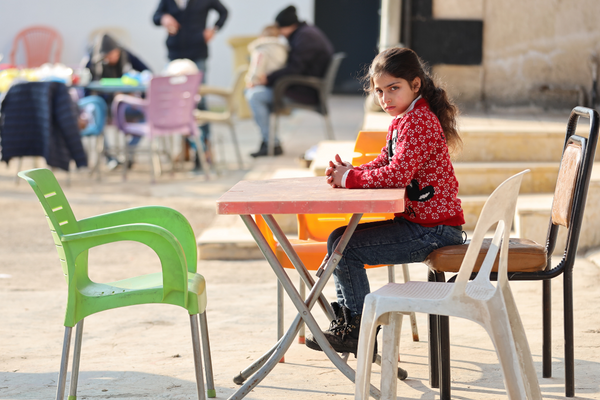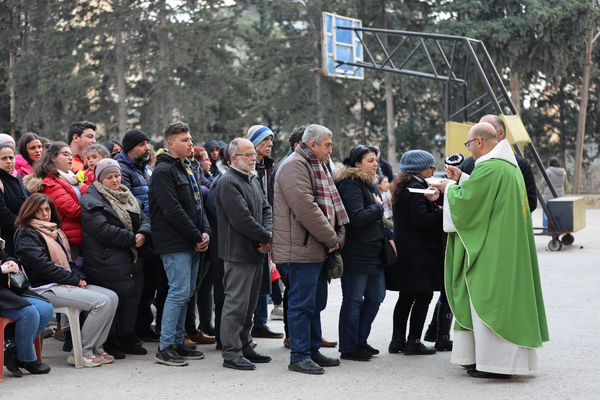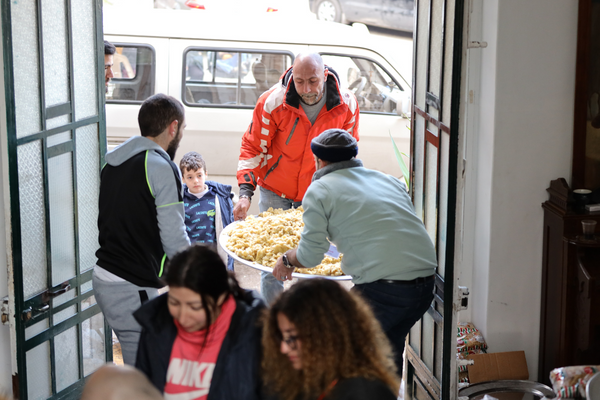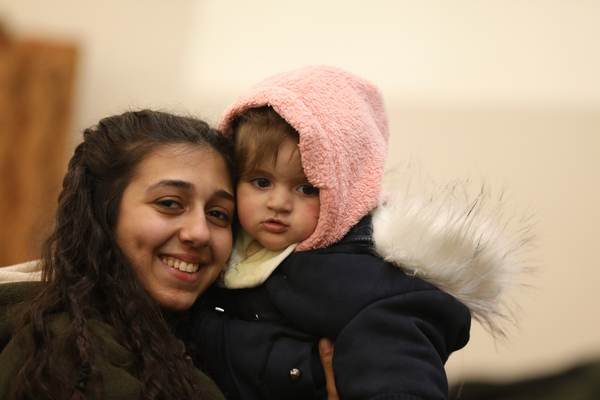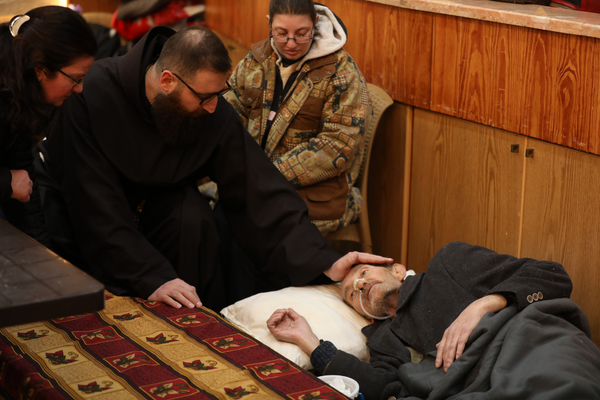A few days after the tragedy of the earthquake that devastated Turkey and northern Syria, the public debate has often focused on a very controversial issue, which at this particular moment constitutes one of the main obstacles to humanitarian aid in Syria: international economic sanctions.
In these years of war and again recently Association Pro Terra Sancta, together with at least 40 other NGOs operating on the territory, has launched an appeal to remove, or at least mitigate, the restrictive measures against Syria so as to facilitate the arrival of humanitarian aid.
But what is it? What are the reasons for the sanctions imposed on Syria and what are the presumed or actual consequences? What is happening today?
In this article we retrace, not exhaustively, the history of sanctions and in particular of the Caesar Act and we dialogue with Giacomo Gentile, responsible for the country in Syria.
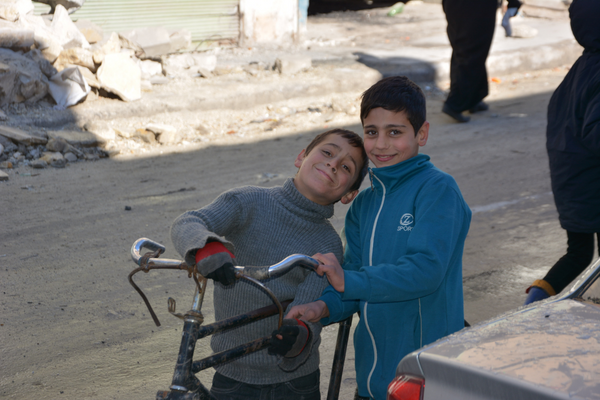
The introduction of sanctions against the regime of Bashar al-Assad
A month ago, the US Treasury Department decided to suspend for six months one of the many sanctions that have forced Syria into international isolation for twelve years .
By sanction we mean the negative legal consequence that the legal system links to an anti-legal action, classified as unlawful.
The sanctions in place today throughout Syria were introduced in 2011 by multiple countries, with the United States and the European Union at the head, with the aim of damaging the government in Damascus which says the measure "had perpetrated a Cruel repression of innocent civilians" during the civil war – Arab Spring – which began in major Syrian cities in March of that year.
Since then, the sanctions packages that will be added year after year have been aimed at strengthening the intent to punish Syrian President Bashar al-Assad and all groups and individuals close to him or in business with the regime.
At the end of May 2022, the Council of the European Union extended the restrictive measures against the Syrian regime for another year, until 1 June 2023. In the press release published in May, he also stated that 289 personalities are subject to an asset freeze and travel ban.
The sanctions are also targeted, as in the case of Syria, at companies and entrepreneurs who do business with the Assad regime accused of serious violations.
Caesar Syria Civilian Protection Act of 2019
In December 2019, former US President Donald Trump introduced the "Caesar Syria Civilian Protection Act of 2019", which was approved by the US Congress and came into force in June 2020.
At the heart of the law are sanctions to pressure the Syrian government and its circle to stop "the violence that erodes people's fundamental rights."
Moreover, the restrictive measures are on paper intended to resolve the bloody conflict through serious and constructive participation in peace negotiations.
Reading the text we see that the sanctions aim to target any individual who consciously offers support to the government of Bashar al-Assad through military, technological and financial support and who earns through the sale of goods, services, technology, information by increasing internal Syrian production of oil and natural gas.
The Caesar Act also includes an embargo on oil imports, a freeze on Syrian Central Bank assets stored in the European Union, restrictions on numerous investments and on the export of technology that can be used to suppress rebel uprisings.
In short, the law sanctions anyone who supports Damascus' military, commercial, construction, energy, and engineering sectors. Section 7431 of the Act provides for the suspension of sanctions if the Syrian government undertakes to respect the human rights of its people.
The horrific consequences of sanctions
While on paper all these sanctions imposed over the years were intended to weaken Syrian President Bashar al-Assad, in power since July 17, 2000, the reality is exactly the opposite.
The consequences on the life, or survival, of the Syrian people have been evident from the beginning: prices for basic foodstuffs in 11 years have increased at least 27 times; electricity, as we have repeatedly mentioned, is guaranteed for two hours a day; The distribution of bread fell by 75% and that of meat by 90%. The black market sells goods and services at unaffordable prices for many families and about 70% of doctors in Syria have either died since 2011 or left the country.
Today, extreme poverty is close to 90% of the population and restrictive measures block or strongly hinder efforts to revive education and the reconstruction of buildings, homes, roads and hospitals.
In this scenario, the biggest joke, but perhaps predictable: President Bashar al-Assad has not only not been touched by sanctions, but now aims to play a pivotal role in the Middle Eastern chessboard.
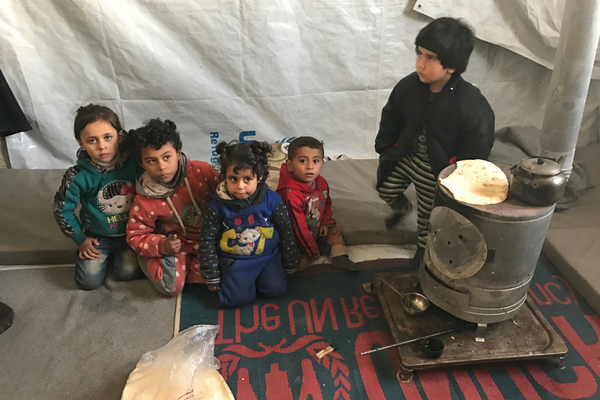
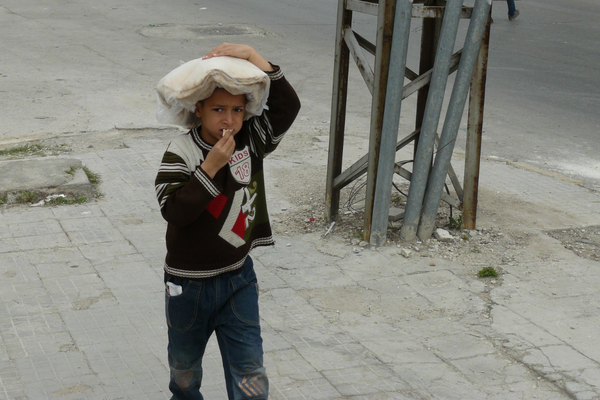
What about humanitarian aid?
Standing even one day in Syria, the desperation of Syrian men, women, children and elderly is evident. A desperation summed up in the appeal of Father Elias Maraashli Haddad who implores the international community to remove sanctions because "the people no longer have the strength to live".
Yet, in the "Caesar Syria Civilian Protection Act of 2019" we read in black and white a section dedicated to the Strategy to facilitate humanitarian aid. It is Section 7426 and states the following: The President will inform the relevant congressional committees on the President's strategy to help facilitate the ability of humanitarian organizations to access financial services to facilitate the safe and timely delivery of goods." The following section states that sanctions will be lifted ifland areas besieged by the Government of Syria, the Government of the Russian Federation, the Government of Iran or a foreign person [...] are no longer excluded from international aid and assistance activities and have regular access to humanitarian assistance, freedom of travel and medical assistance.».
In this regard, we asked Giacomo Gentile, head of the country of Pro Terra Sancta in Syria, to tell us about his experience in the reality of the humanitarian aid we have been offering in Syria since 2012.
Giacomo, the sanctions imposed over a decade on the government of Bashar al-Assad have led millions of men, women and children to an unprecedented humanitarian and financial crisis and today can only rely on international humanitarian aid. What is daily life like under sanctions?
One of the many serious consequences of sanctions on Syria is the interruption of many transactions by Western banks to Damascus. Most agencies and banks in Europe, in fact, when it comes to making a transfer to Syria oppose or withdraw for fear of incurring sanctions, regardless of whether they are humanitarian reasons or not.
It is understood that the risk of falling into sanctions is high.
The other important thing to keep in mind is that transfer between private individuals is not allowed in any way. A person who has parents in Syria, for example, cannot send the transfer directly to his family. This effectively isolates the country. For example, recently they explained to me that many of the Ukrainians who are displaced in Italy send aid to their families, while in Syria it is not possible to do so. It is impossible because in fact this would not be a transition for humanitarian purposes.
Are there no exceptions for earthquakes?
For the earthquake it seems so. Things are moving both for sending money from Western banks and for sending materials. There is less bureaucratic control over basic necessities entering the country and as well as for transfers: the Syrian Central Bank itself has said that when the reason for the transfer is put as the reason for the earthquake, the exchange rate that is used in the bank will be equal to that of the real exchange rate.
Do you think sanctions should be removed?
I think that certainly we must either lift or at least remodulate the sanctions: they are still all set on the 2014-2015 model! Now, after 12 years, I think they should be reviewed at least to hit those who should be and not reduce the population to poverty. For example, with the earthquake emergency, private individuals must be able to help each other. I see positive elements because for the first time many European states want to bring a common request for sanctions, especially this year given the earthquake. And this had never happened before.
Perhaps this misfortune of the earthquake will actually lead to a first step towards revision.
Support displaced people in Syria
There are many families forced today to live in tents and makeshift shelters, in the cold and without knowing when and if they will be able to return to their homes. Many are children who from birth have seen nothing but rubble, violence and mourning.
Our presence in Syria has never abandoned them and today, after the umpteenth trauma of the earthquake, we are ready to rebuild and resume projects with faith, hope and commitment.
A first team of Italian engineers left two days ago to reach Syrian cities and check the condition of the houses. It is a first precious step of reconstruction to return, as much as possible, a minimum of everyday life that restores serenity.
EARTHQUAKE EMERGENCY: LET'S NOT LEAVE THE SIRANI ALONE
Below are some pictures from the days immediately following the earthquake in Aleppo.







